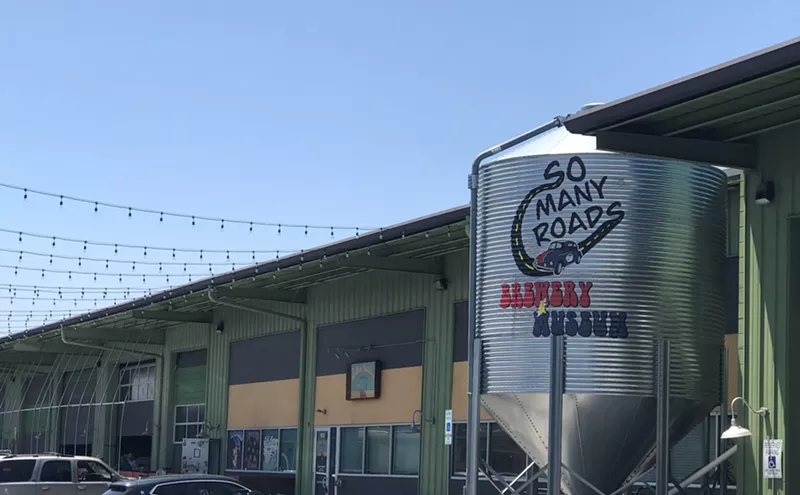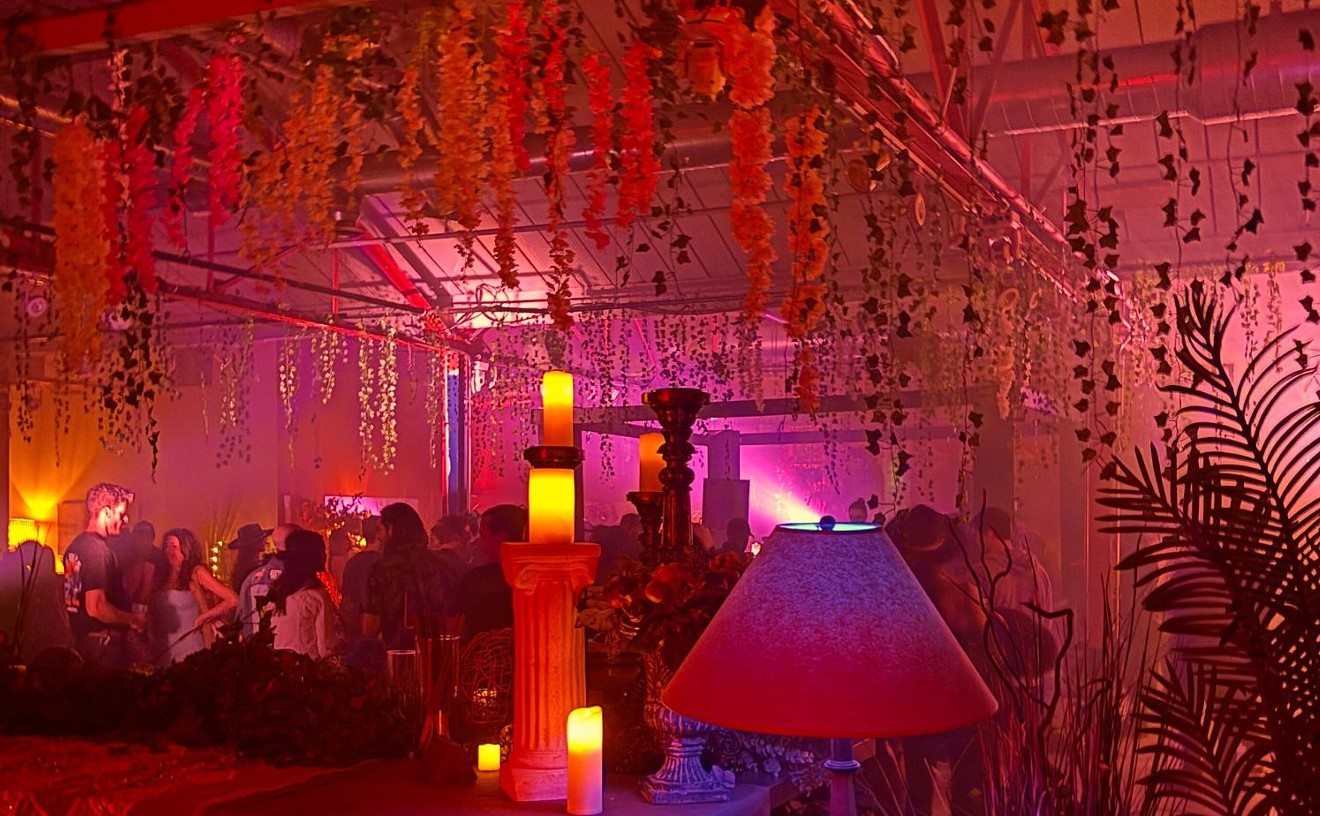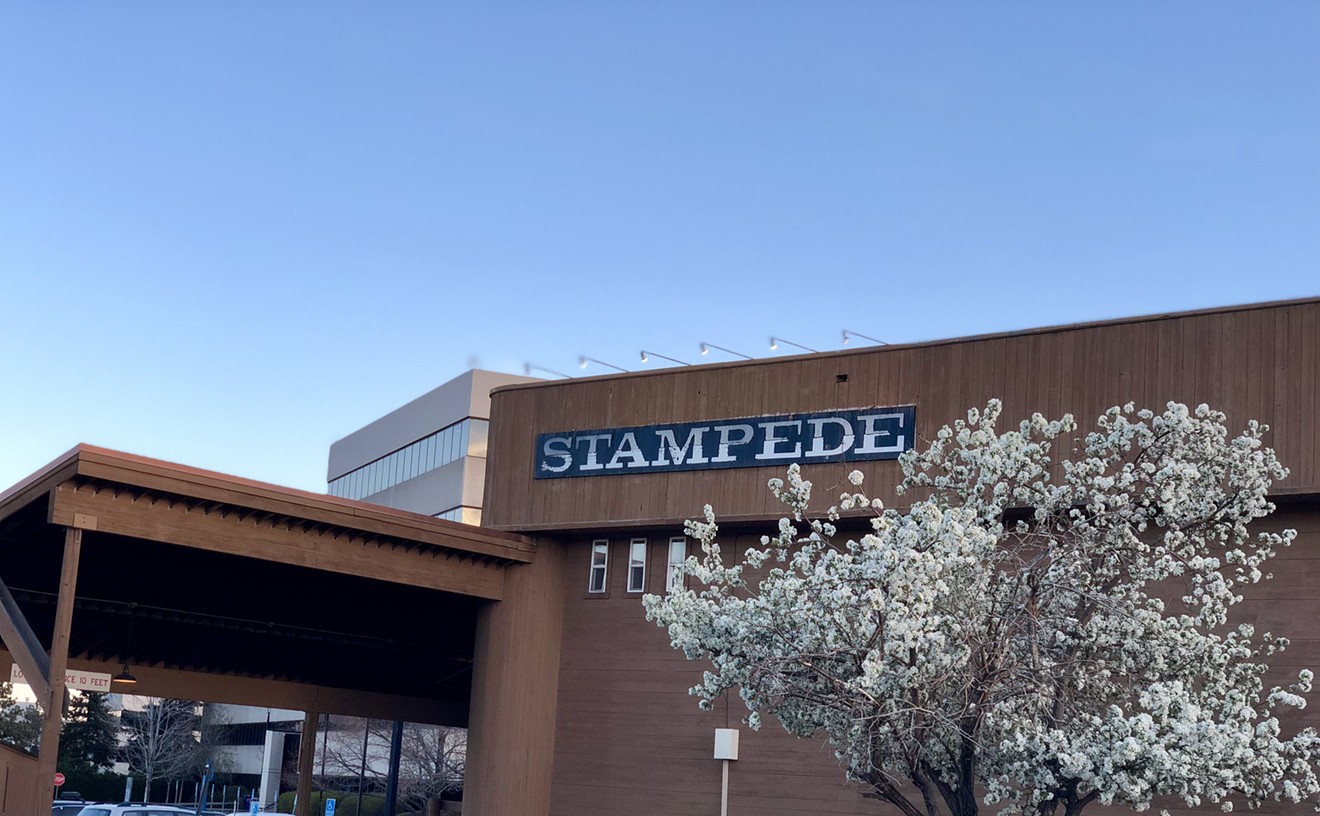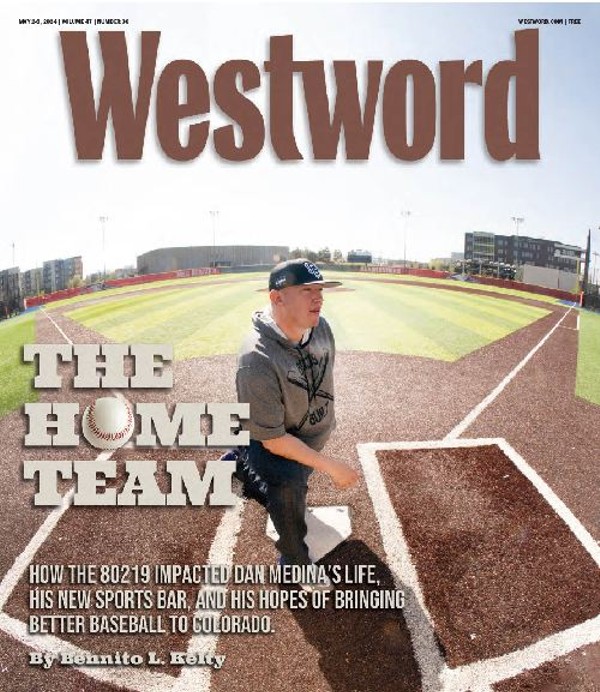Now a trio, Nurses went even weirder -- but, paradoxically, more accessible -- with its latest record, 2011's Dracula. Singer Aaron Chapman sounds like he's part otherworldly creature and part earthbound while existing on the fringes of a middle range of sound.
We recently spoke with keyboardist and beatmaker John Bowers about the band's evolution, its videos and the concepts underpinning Dracula beyond the obvious literary and cinematic references.
Westword: I heard some rumor that your band was based out of California at one time, and that it was a kind of crazy screamo outfit. Is that true?
John Bowers: Oh, we weren't a screamo band. We were definitely more of a weird rock band, but that was a long time ago. We had the same name but were essentially not the same band. Aaron [Chapman] and I went on, and we just kept the name because we liked it. We weren't a popular band, so we decided to keep the name and do what we want to do. We were more of a weird angular rock band, but definitely not screamo.
Maybe the person I heard that from was under that impression for some reason. He was in a band called VAUX.
VAUX? Yeah, we definitely hung out with those guys.
What was the catalyst for doing a seemingly entirely different form of music?
Life, I guess. A big part of it was that Aaron and I had stopped playing with the two guys we had been playing with way back when -- two friends from high school -- and we just started making music on our own. Our moods were changing, and our lives were changing, and we became interested in different things. We got a lot more interested in songwriting and the recording process and making art more and more.
From Hangin' Nothing But Our Hands Down to Dracula is quite an evolution of sounds. Is there anything you do to challenge or inspire yourselves to create in a different way or to force yourself to write your music a step removed from what you did on previous albums?
I guess there's a lot of things. We don't consciously say, "Alright, now it's time to move on." I think it's more the fact that two years after you make one thing, you're a different person. You have different experiences you have taken from a lot of different angles of life, and you still have a lot of the same tendencies, but you want to express yourself in a different way. At least I've been fortunate enough to feel that way.
It's just time going forward and expanding and your brain, wanting different things and liking different things, and maybe understanding something that you didn't before -- the evolution of taste, really. We consciously, actively, seek out new things. I would put it that way instead of us always saying, "Let's change our band." We try and not repeat ourselves in the way that we put things together.
That video Behn Fannin directed for "And Now the Curse of Marjorie" looks a bit like something Jan Svankmajer might have done if he'd got his start doing music videos. Did you give him creative input on that video, and do you know the significance of the character with the bag on his head?
Yeah, that's the old band. I think it was all... I don't remember how much we worked on that video. But we were all pretty interested in Jan Svankmajer in that period of life. But to be honest, I don't know the narrative. I haven't thought about that video in five years. It's good, but it's a different part of life. That record I don't really consider part of our discography, funny enough. I feel like our new era began with Apple's Acre
It looks like you use an SP-404 as a sampler or as a beat maker. How did you get into making beats and what have been some of your inspirations for making them in the past and perhaps now?
I use samplers for all sorts of stuff, all sorts of sounds. We got one because we thought it would be a good way to make new sounds. That's how we started getting into samplers--just wanting to use things that weren't "real" instruments. Just to shape sounds however we want into infinity. I think it's an awesome, useful tool.
I think Dracula reflects working with James [Mitchell], who we hadn't recorded with before, who has, always, his whole life, made beats, and he's a really good drummer. Aaron and I had been into sampling and making beats for a long time, and when we started working with James, it made a lot of sense, so it kind of came from discovering how to do it and keeping on going. A lot of the musical influence on making beats is definitely from when we were kids and listening to early hip-hop.
With some of the unusual sounds you use, do you use circuit bent devices at all to create sounds?
Actually, no, we don't use circuit bent stuff. I did once, a circuit bent Casio SK-1. It's hard to actually say the process of any sounds because it can become something I recorded on my phone and then processed through whatever -- a bunch of pedals and a sampler. Dozens of things. Or it could be something we just put in and reversed and thought it sounded good. But there's not circuit bending, it's usually just spending hours and hours with a bunch of instruments and toying around with learning how to make the sounds you want to.
It looks like you're using a bank of synths. How did you get into playing keys and synths, and what do you like that you're able to do with them over other instruments?
Got into playing keys and synths...Well, my had a synthesizer growing up. This digital synth called an ESQ-1. It's an Ensoniq. I actually have one right now. My dad was a musician, and is a musician, and he introduced me to piano and synthesizers. I know that when Aaron was growing up, his mom was a piano teacher, so he grew up playing piano.
I think we were both just taught something about it, and as we got older and started messing around, we liked synths. First there's like a million different kinds and you can play with the waveforms and make things sound cool, if it sounds good. A lot of the times it doesn't and you go, "Oh, I wish it sounded more like this" and you actually get to change it. I think that's really cool.
Your vocals on "Eternal Thrills" really complement the song well; it sounds like you sample the vocals real time and manipulate them some. What do you think treating the vocals with effects adds to the music?
I sing a lot live, but on the album, it's all Aaron. I don't know if there are any of my vocals on the record, except in some weird processed way. But all the obvious vocals are Aaron. On the record, we manipulate the vocals. But, mostly, it's just Aaron singing, and we made it sound differently using pre-amps or something.
We go through periods where we're really into how weird, processed, sampled vocals sound, and then we go through periods where we're just stoked on the human voice with a little bit of reverb -- like a classic human voice, like a Roy Orbison. We go in and out of phases but all of the singing live is done by us. No real sampling of voices right now.
Aaron definitely has a distinctive way of singing.
Yeah, that's just how he sings. A lot of people ask us if we process the vocals to sound that way, but the truth is, that's just how he sounds.
The video for "Fever Dreams" looks like something Laurie Anderson might have done. What was the concept behind that?
There was more of a feeling than a concept. We wanted to paint the universe where the song came from. That weird character that really is nobody, it's Aaron in the video as the actor, but the character singing the song is nobody and he's frantically dancing around a basement nowhere. It's more of a dark corner of your mind than a place in reality. That's the feeling we went with. It was me Aaron and James and Aaron's girlfriend who put it together.
As a band, you've put out a number of music videos. Why did you feel that's important, and have you augmented your visual presentation for the current tour?
We've made a bunch of visuals, but not videos as such. I think videos are important because they can maybe bring you further into the song and help you understand it or help you enjoy it more. I definitely have liked songs and liked them more once I saw the video. I think it's a really neat thing. I think a lot of people make music videos just to promote a record or whatever, but I think it's an art form.
We don't really have crazy visuals for this next tour. We have a group of really awesome songs that we love to play. Part of it is someone else's tour, which makes it a little harder to go really big on your stage set-up. It's more that we're playing the songs and playing them in interesting ways. Kind of a classic show.
Dracula seems to be such an odd name for an album making the kind of music you do. Was it from a song lyric and why do you think that name suited the whole album so well?
It wasn't from a lyric. We made this record just over a month-ish. All of the emotions we were swimming around in...So you have Dracula, which you immediately think of as the vampire Dracula and you think of a Halloween costume or something. Or maybe the novel and the classic Dracula character. But underneath that there are tons of things that are interesting and that go so far beyond the original aesthetic of what Dracula is.
It was all these things that come along with the baggage of the word "Dracula" that we were interested in. Like loneliness, humanity, superhumanity, love, fame, destruction, eternity, power. All these strange things that are interesting and empowering and have a lot to do with just being a person. I think if you look past the surface level, it becomes more of a human experience, I guess, instead of an aesthetic experience.
Something we talk about lately is that, especially in the 21st century, taking a symbol or a word, which is a symbol, and taking it and redefining it because it's already so big and saturated with experience that it can actually be injected with new meaning. I think that's essentially what we did. It's Dracula, the record, not Dracula, the vampire. I think we did it with our band too name because we're not literally Nurses either.
Follow Backbeat @westword_music and facebook.com/westwordmusic











